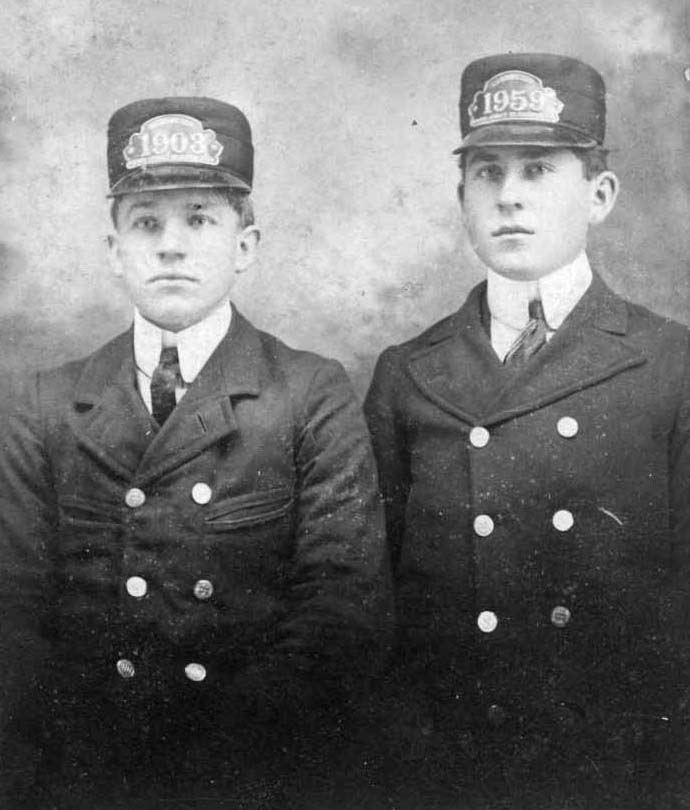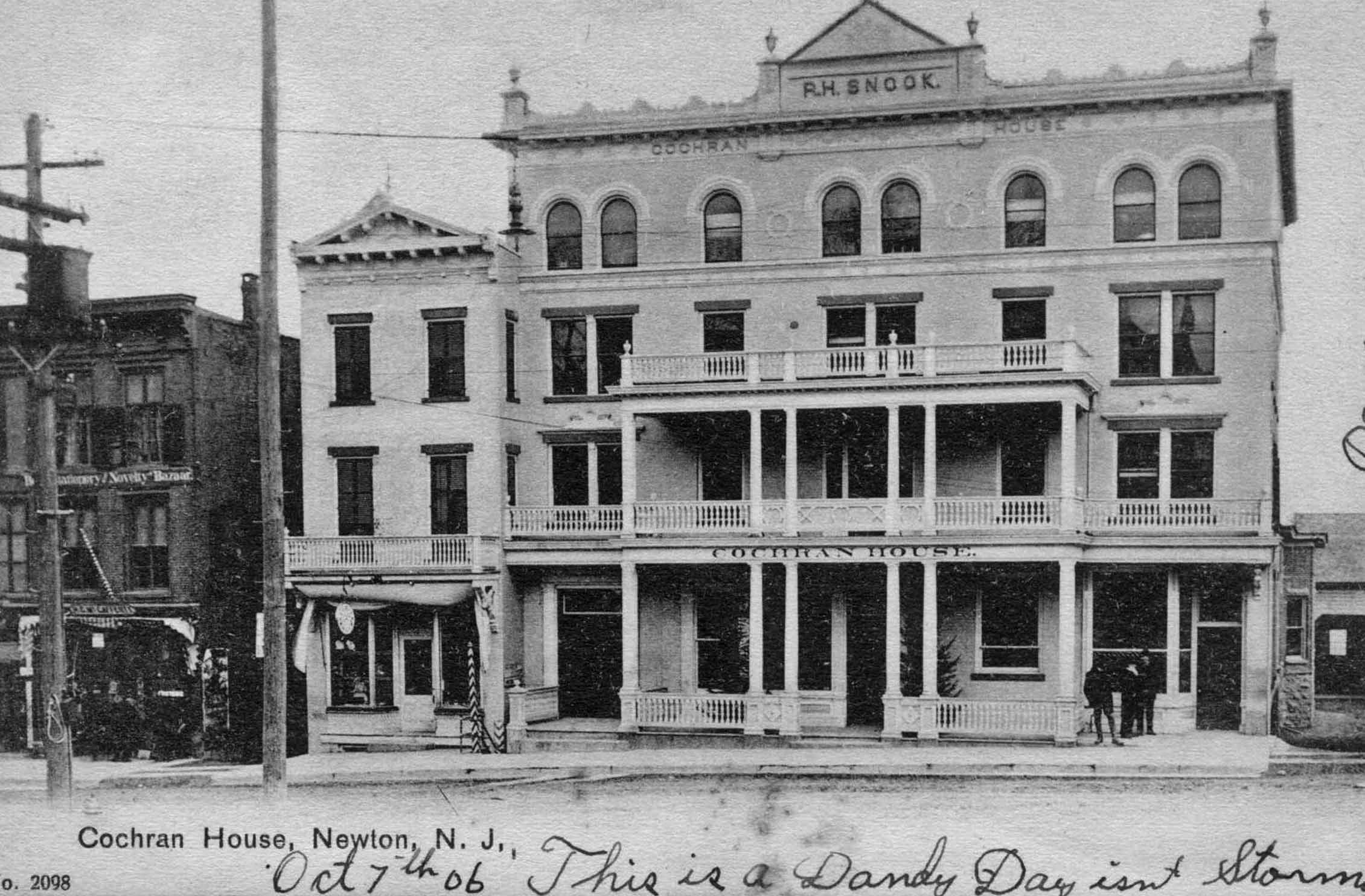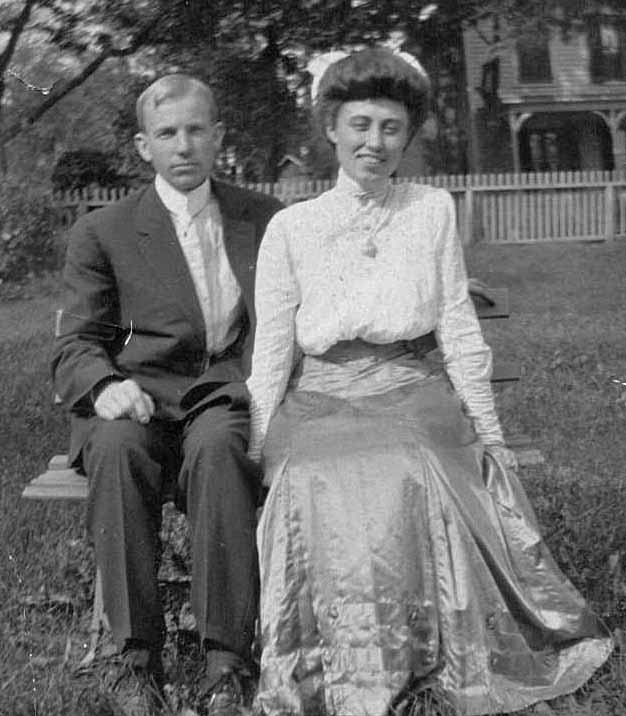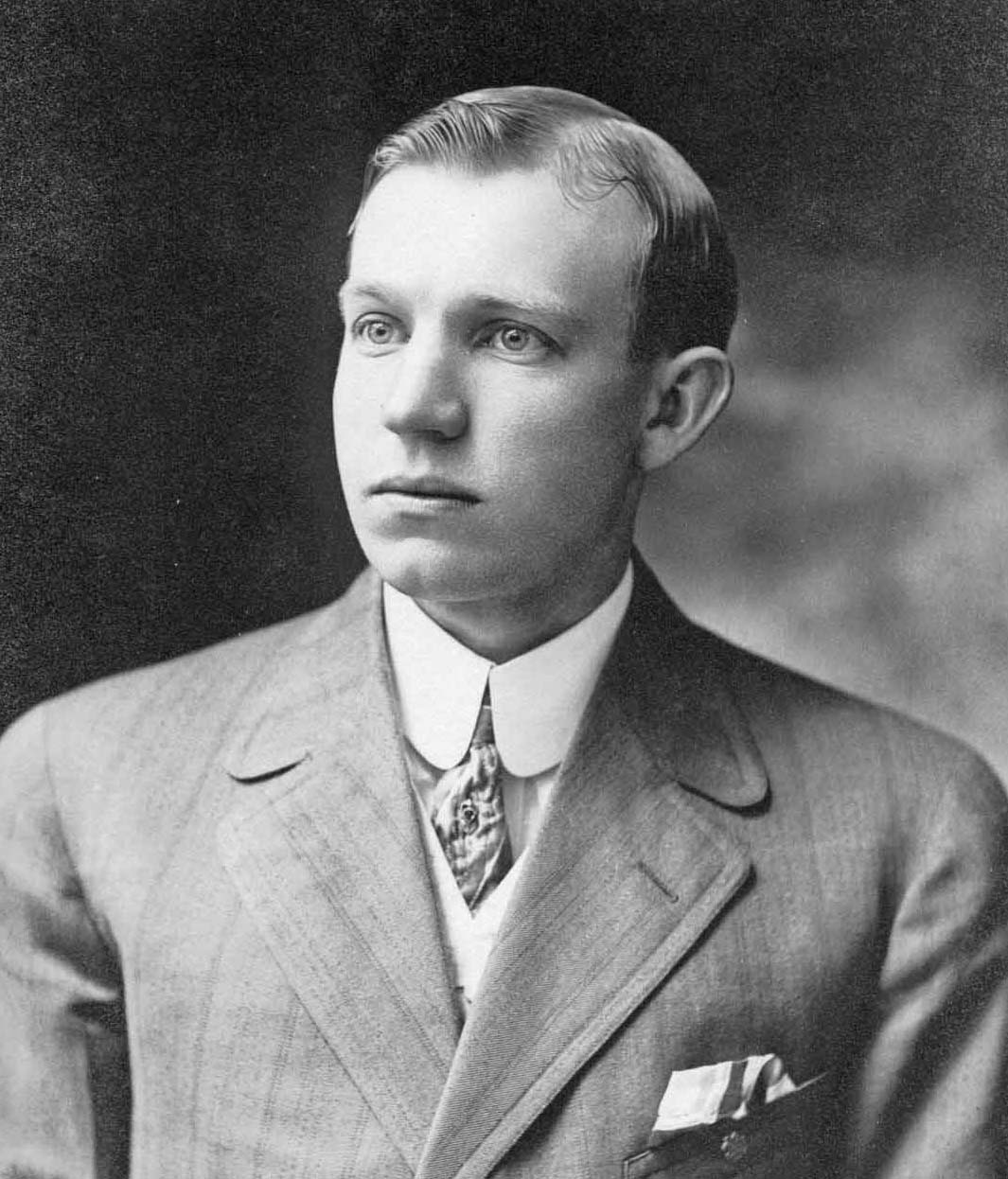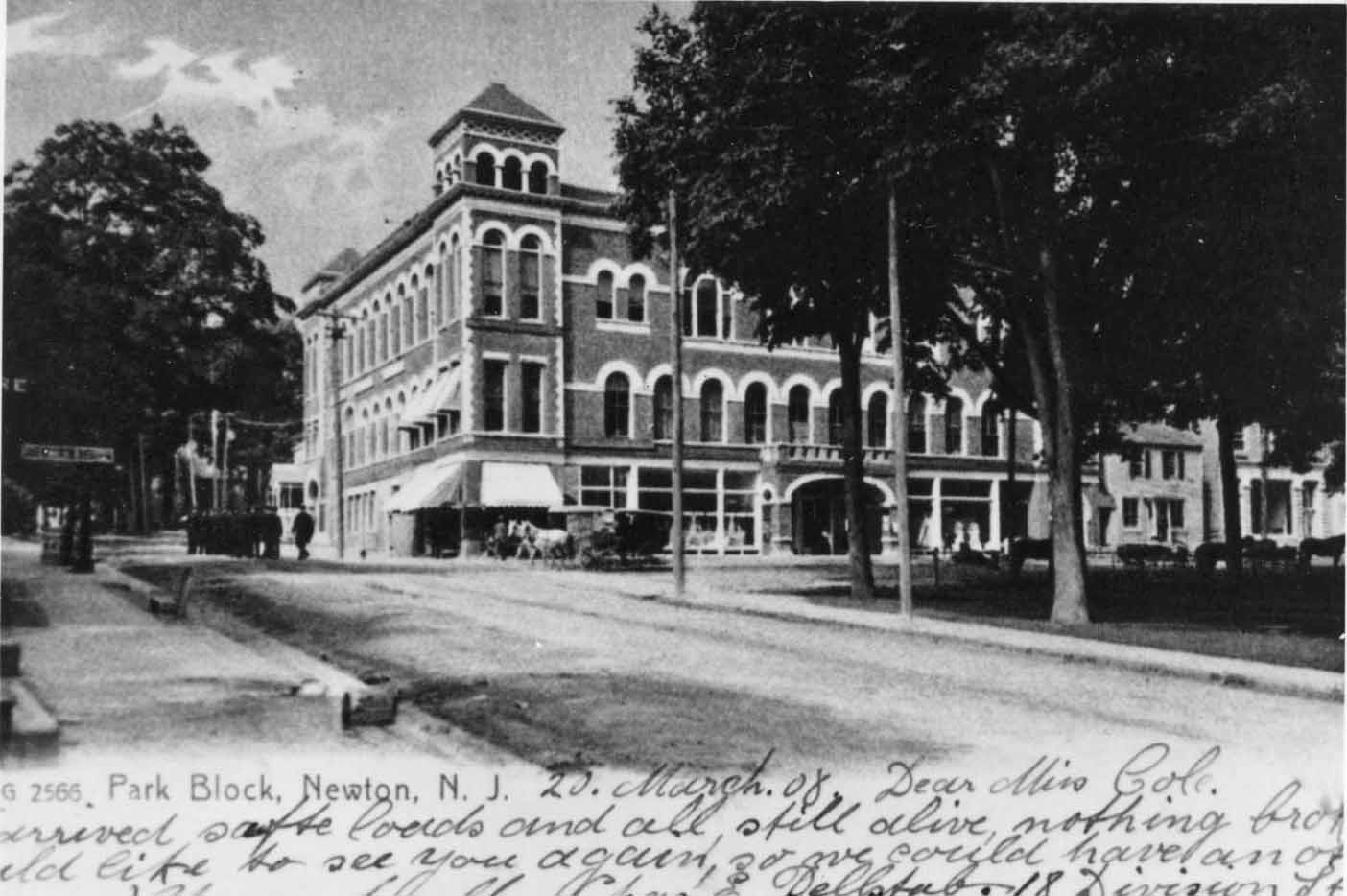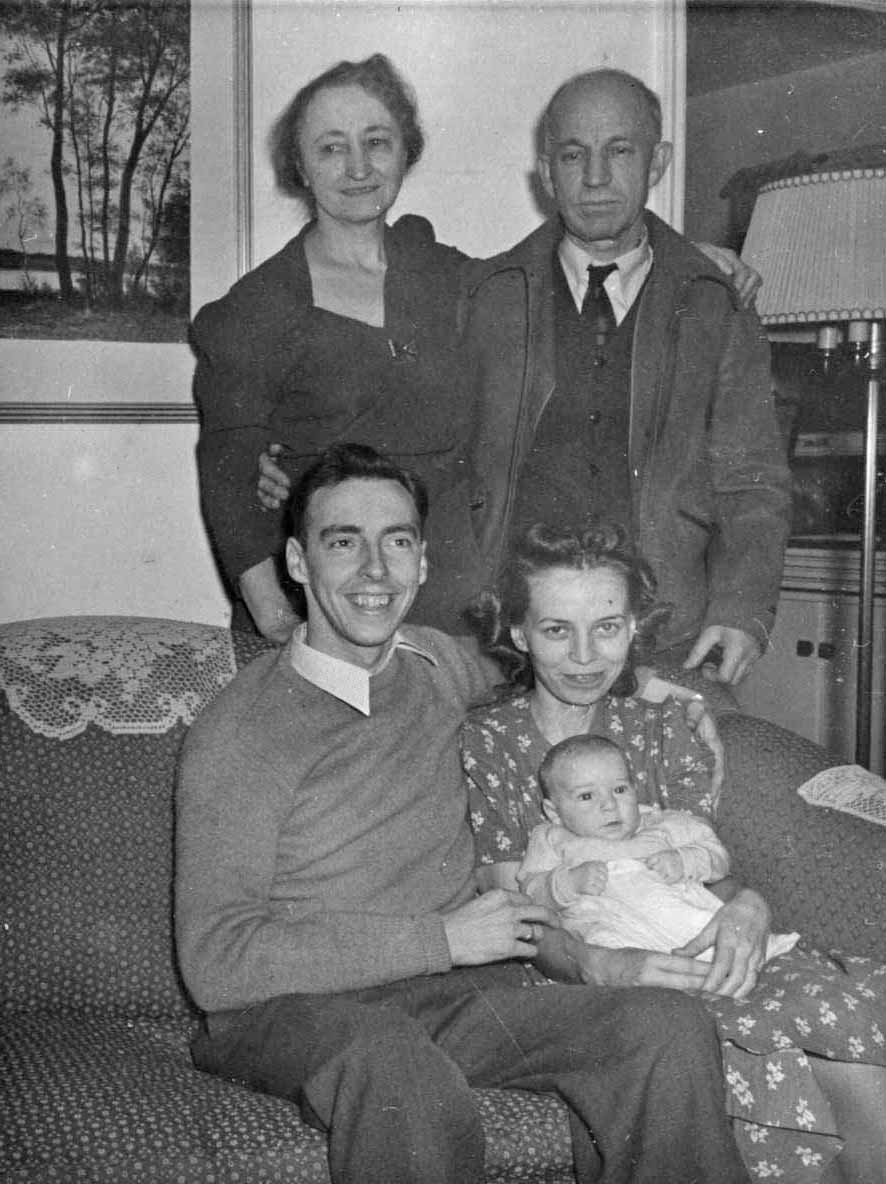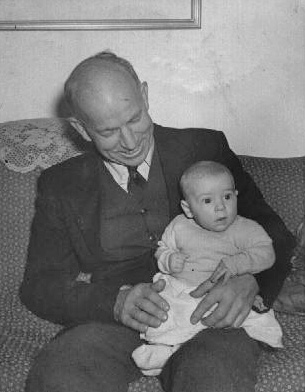| Roe Family History |
| Home | Family History | Genealogy | Depew |
Claud Morris Depew |
|
Your great, great grandfather was born on September 7, 1883 as Claude Depue on a tenant farm in Layton, New Jersey, not far from the Delaware River. His parents were Dayton and Mariah Clark Depue, poor farmers, who rented the land that they farmed. Claude was the second of nine children and he was determined he was not going to spend his life as a farmer. The late 1800's were boom times as industries were being built and fortunes made by businessmen. Claude wanted to be part of it and have a better life than he could ever have on the farm. Although he was born to poor parents the Depue family in America had a proud history and many in the family were doing very well. Nicholas Depui, first of the line to come to America, fled France during a time of religious persecution and came to New Amsterdam in 1662. The family was successful here in business and our line moved up the Hudson River to the Kingston, New York area. At another time I'll tell the story of how they helped settle the frontier, lived and fought with the Indians and became landowners along the Delaware River. Although the founder of the line in America was French they lived with and married into Dutch families so there is little French blood in the line. Claude quit school in 1897 at age 14 to leave the farm and go to work. He and his brother Roy moved to the city, Newark, NJ, where they worked as conductors on a trolley line. His next job was as a grocery delivery man at Lehman and Company in Dover. He was ambitious and a hard worker so was given charge of the shipping department and then chosen to be a grocery store manager when they opened a store in Newton in 1909. He was then 26 years old. The supermarkets as we know them today wouldn't come along for another 50 years. For many years markets were modest in size, although some were parts of chains. There were no adding machines, calculators or credit cards. People paid mostly cash for food and in some cases had a store credit that was paid at the end of the month. Claude was very good with numbers and could add a long column just by running his eye down the list. It was after returning to Newton that he began courting school teacher Lillian Cole, who he probably knew earlier in life. In those days many single men rented rooms in boarding houses or hotels. Claude lived in the Cochran House, one of the best hotels in Newton and just a block from his grocery store. Lillian lived not far away. They married on March 12, 1912 in Newton when they were both about 28. Their first child, Ilsa Irene, was born that October, six months after the wedding. Claude Milton was born in 1914 and Howard Cole in 1916. The family settled into a nice life in a growing, prospering town. Then tragedy struck. On February 21, 1918 Lillian died of a heart attack leaving Claude with three young children and a growing business to run. He needed help with the children and for a time they lived in Dover with a house keeper, while Claude continued to work in Newton. He probably moved back into the Cochran House for a time. It's not clear why the family didn't take more of a role raising the children. Although neither sets of grandparents were wealthy they did live on farms. Perhaps there was bad feelings because Claude had turned his back on the family to go into business. In 1925 at age 37 he married Elizabeth Harrigan and moved the family back to Newton taking up residence at 17 Linwood Avenue, where they would remain the rest of their life. Elizabeth (Lizzy) worked in Claude's store where he met her and was seven years older than he was. She came from an Irish Catholic family and would have been considered a spinster at her age. It was a marriage of convenience for both of them and there would be no additional children, however, Lizzy turned out to be a wonderful, loving wife and mother, and a terrific grandmother too. She was full of fun, had a loud and fun loving family and made the house a home again for Claude and his children. Now settled once again Claude was able to get more involved in the business community. Feeling that image was important he changed his name to Claud Depew, probably after Chauncey Depew, a prominent New York businessman and a U.S. senator of the time. Claud was active in town business organizations becoming a charter member of the Newton Rotary, a member of the B.P.O.E. (Elks) and the Harmony Lodge. After 25 years with Lehman and Company he bought the store on Park Street and ran it successfully until 1939 when at age 57 and after 30 years as manager and owner, he sold the store to the Big Leader (was he burned out in the 1939 fire?) and worked at the Acme grocery store on lower Spring Street in Newton. From 1946 to 1956 he was the desk clerk at the Cochran House in Newton. He always walked to work and back and owned a car only briefly. He was short of stature, quite bald, a whiz at arithmetic and an avid baseball fan. When not working he could be found sitting by the radio and later the television listening to Yankee games. He was Presbyterian, but not active. His second wife Elizabeth was Roman Catholic. After a two year retirement Claud died on December 19, 1958 at age 75 of a massive heart attack in his front hall as he went to get the morning paper. His wake was held in the parlor of his home as was the custom at the time and he is buried in Newton Cemetery with both of his wives and his son Howard. Claude lived during a time of change and was representative of those making the transition from farm to business. He was ambitious and hard working, but was aware that he was an uneducated farm boy. He created the image of himself as a business man, but always remained friendly and unassuming. The loss of his first wife created a challenging situation, but he kept the family intact and reestablished a settled, happy home. He died when I was 18 and I remember him as a quiet, hard working family man. |
|
